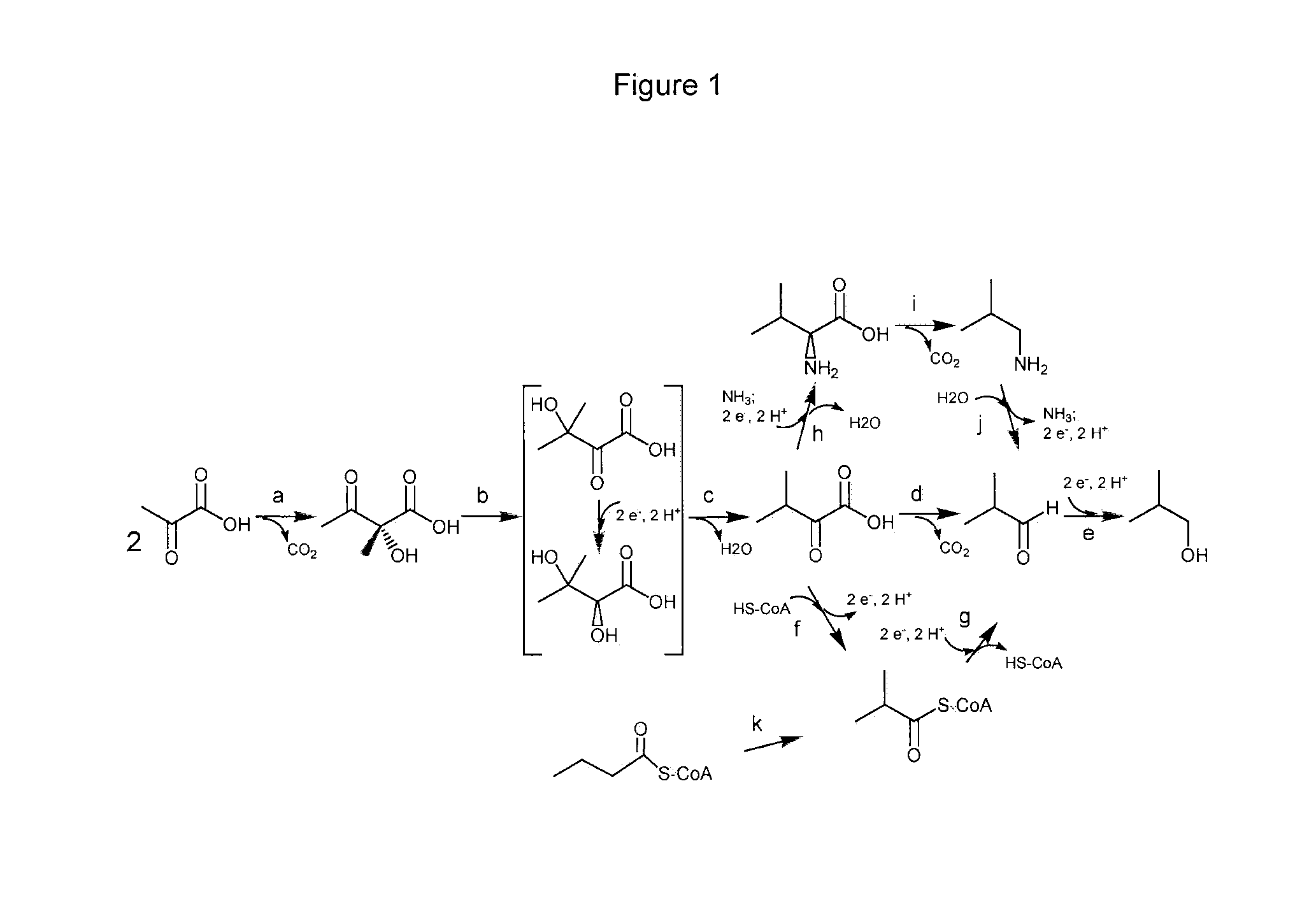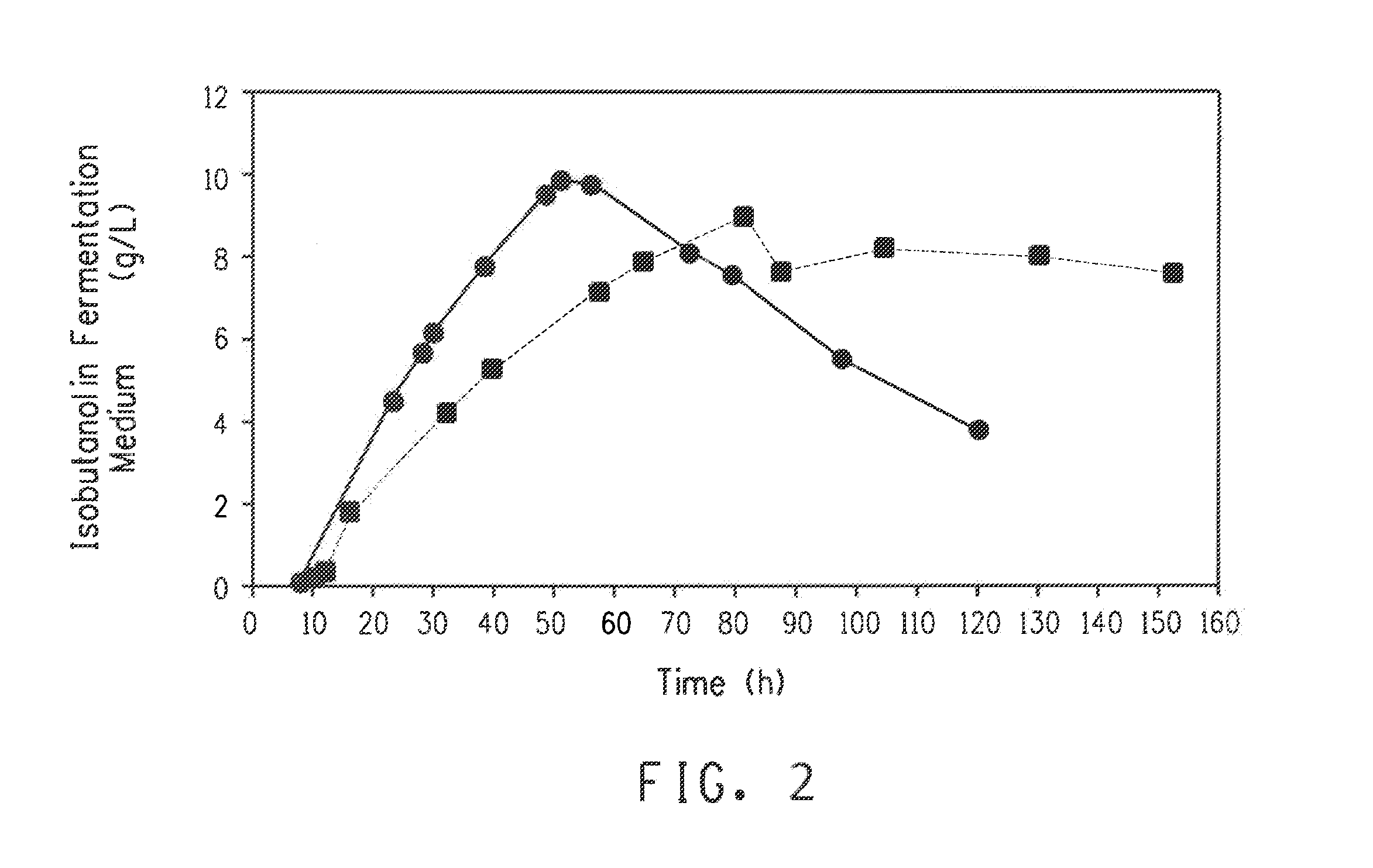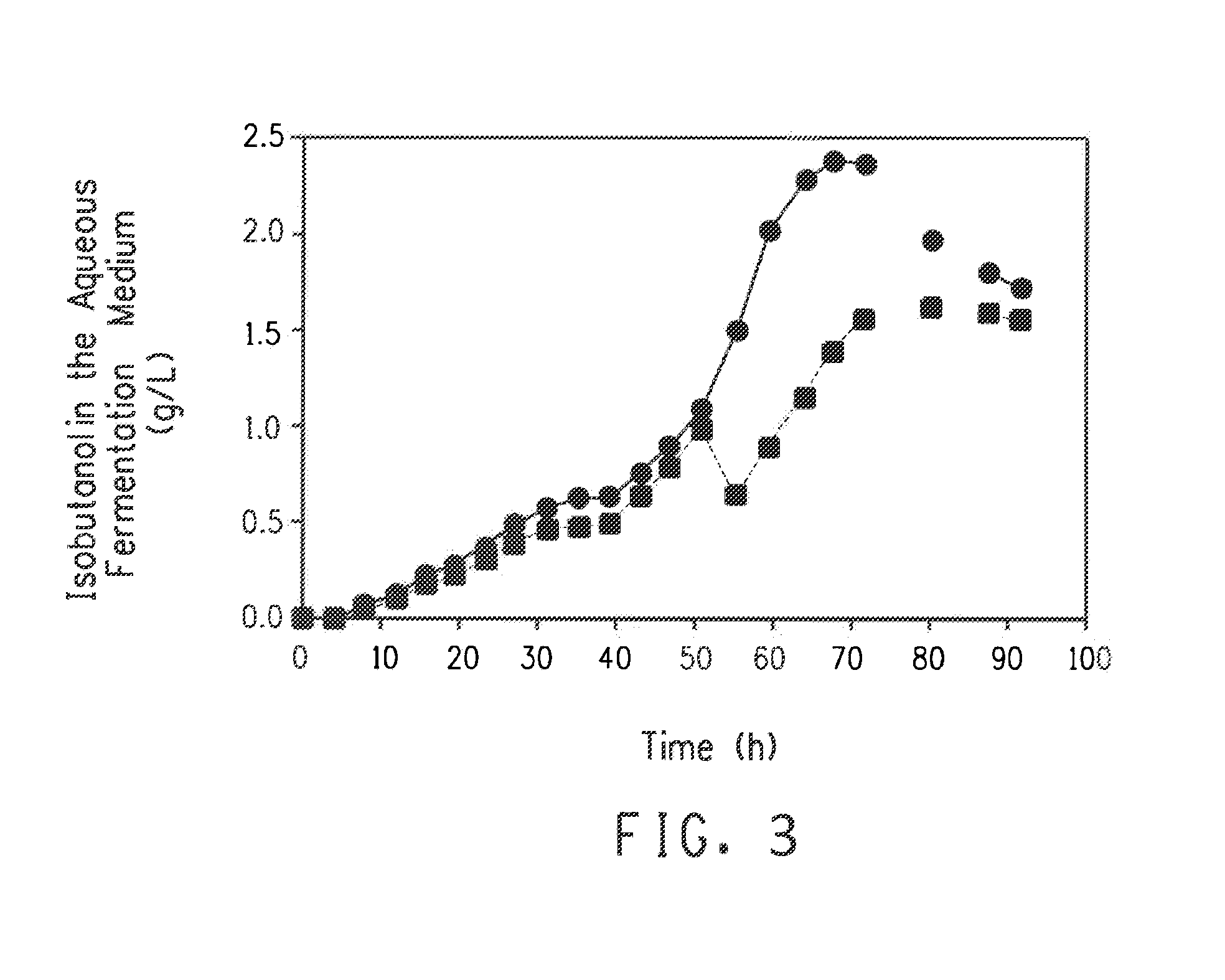Fermentive production of four carbon alcohols
a fermentation process and alcohol technology, applied in the field of industrial microbiology and the production of alcohols, can solve the problems of high cost, unenvironmental protection, and low yield of fusel oil and/or its components, and achieve the effect of cost prohibitive use of valine as feedstock for industrial scale isobutanol production
- Summary
- Abstract
- Description
- Claims
- Application Information
AI Technical Summary
Benefits of technology
Problems solved by technology
Method used
Image
Examples
example 1
Cloning and Expression of Acetolactate Svnthase
[0214]The purpose of this Example was to clone the budB gene from Klebsiella pneumoniae and express it in E. coli BL21-AI. The budB gene was amplified from Klebsiella pneumoniae strain ATCC 25955 genomic DNA using PCR, resulting in a 1.8 kbp product.
[0215]Genomic DNA was prepared using the Gentra Puregene kit (Gentra Systems, Inc., Minneapolis, Minn.; catalog number D-5000A). The budB gene was amplified from Klebsiella pneumoniae genomic DNA by PCR using primers N80 and N81 (see Table 2), given as SEQ ID NOs:11 and 12, respectively. Other PCR amplification reagents were supplied in manufacturers' kits, for example, Finnzymes Phusion™ High-Fidelity PCR Master Mix (New England Biolabs Inc., Beverly, Mass.; catalog no. F-531) and used according to the manufacturer's protocol. Amplification was carried out in a DNA Thermocycler GeneAmp 9700 (PE Applied Biosystems, Foster City, Calif.).
[0216]For expression studies the Gateway cloning technol...
example 2 (
Prophetic)
Cloning and Expression of Acetohvdroxy Acid Reductoisomerase
[0219]The purpose of this prophetic Example is to describe how to clone the ilvC gene from E. coli K12 and express it in E. coli BL21-AI. The ilvC gene is amplified from E. coli genomic DNA using PCR.
[0220]The ilvC gene is cloned and expressed in the same manner as the budB gene described in Example 1. Genomic DNA from E. coli is prepared using the Gentra Puregene kit (Gentra Systems, Inc., Minneapolis, Minn.; catalog number D-5000A). The ilvC gene is amplified by PCR using primers N100 and N101 (see Table 2), given as SEQ ID NOs:13 and 14, respectively, creating a 1.5 kbp product. The forward primer incorporates four bases (CCAC) immediately adjacent to the translational start codon to allow directional cloning into pENTR / SD / D-TOPO (Invitrogen) to generate the plasmid pENTRSDD-TOPOilvC. Clones are sequenced to confirm that the genes are inserted in the correct orientation and to confirm the sequence. The nucleoti...
example 3 (
Prophetic)
Cloning and Expression of Acetohydroxy Acid Dehydratase
[0223]The purpose of this prophetic Example is to describe how to clone the ilvD gene from E. coli K12 and express it in E. coli BL21-AI. The ilvD gene is amplified from E. coli genomic DNA using PCR.
[0224]The ilvD gene is cloned and expressed in the same manner as the budB gene described in Example 1. Genomic DNA from E. coli is prepared using the Gentra Puregene kit (Gentra Systems, Inc., Minneapolis, Minn.; catalog number D-5000A). The ilvD gene is amplified by PCR using primers N102 and N103 (see Table 2), given as SEQ ID NOs: 15 and 16, respectively, creating a 1.9 kbp product. The forward primer incorporates four bases (CCAC) immediately adjacent to the translational start codon to allow directional cloning into pENTR / SD / D-TOPO (Invitrogen) to generate the plasmid pENTRSDD-TOPOilvD. Clones are submitted for sequencing to confirm that the genes are inserted in the correct orientation and to confirm the sequence. T...
PUM
| Property | Measurement | Unit |
|---|---|---|
| concentration | aaaaa | aaaaa |
| concentration | aaaaa | aaaaa |
| temperature | aaaaa | aaaaa |
Abstract
Description
Claims
Application Information
 Login to View More
Login to View More - R&D
- Intellectual Property
- Life Sciences
- Materials
- Tech Scout
- Unparalleled Data Quality
- Higher Quality Content
- 60% Fewer Hallucinations
Browse by: Latest US Patents, China's latest patents, Technical Efficacy Thesaurus, Application Domain, Technology Topic, Popular Technical Reports.
© 2025 PatSnap. All rights reserved.Legal|Privacy policy|Modern Slavery Act Transparency Statement|Sitemap|About US| Contact US: help@patsnap.com



